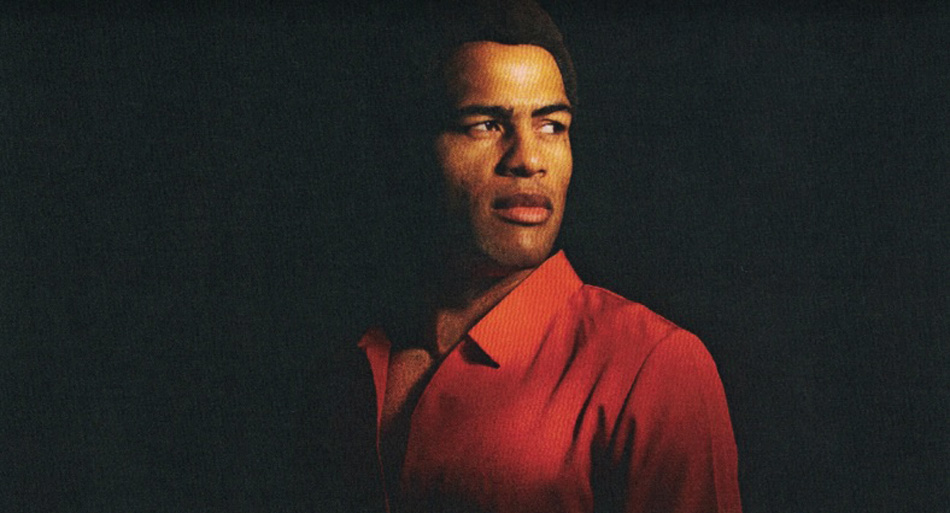
LOS ANGELES—A multi-talented actor/writer named Austen Jaye has a thing for singer and activist Harry Belafonte, who recently celebrated his 90th birthday. His show Belafonte Unauthorized: A Shared Humanity recently enjoyed a well attended outing at the Barnsdall Park Theatre in Hollywood, directed by Iona Morris.
Jaye’s passion for his subject is obvious, and is best expressed when Belafonte is asked to serve the civil rights movement in the way he was best able—using his fame to raise thousands of dollars for the latest voter registration or other project. He would also travel through the South during most harrowing times, making some narrow escapes from the Klan. He derived some of his commitment from the rage he felt at the racism he saw as a youngster—such as his mother getting slapped across the face by an employer—and by his mother’s reticence at simply telling him she loved him. An early stint in the Navy during World War II did not present opportunities to him as a young African-American sailor.
Jaye’s politics, too, seem to mesh closely with Belafonte’s. In his opening song he made sure to have the audience sing along lustily on the verse, “Woman is smarter in every way.” The singer claimed to have gotten his social consciousness from his Jamaican immigrant mother, the father having played little active role in Harry’s upbringing. Another important influence on him was the great singer-actor-activist Paul Robeson, whom he met on several occasions. Belafonte and Sidney Poitier were contemporaries, colleagues, and often competitors for certain film or stage roles, though politically Belafonte was more willing to put himself out in front.
Belafonte Unauthorized is equally about re-inventing the man as an artist. He confessed to Robeson, who admired his repertoire of Jamaican folk songs, that he had not learned them at his mother’s knee, as a more dissembling man might have said, but rather from consulting the music archives at the Library of Congress. Capitalizing on that previously unexplored literature, even as the folk movement exploded all around him, gave him a unique position in the world: His stories and songs shortly propelled him from background gigs at $70 a week to center stage at $225 a week, and later much more.
Even as Belafonte became widely known to film audiences, starring with Dorothy Dandridge and Joan Fontaine, he still suffered racial insults. One of those was that in the film Carmen Jones, an updated scenario for the opera Carmen, this great singer was not allowed to sing his own leading part, but was dubbed by a white studio singer (as was Dandridge).
Because of his civil rights work he was threatened with the anti-Communist blacklist, but he asked to meet personally with Ed Sullivan, and after convincing Sullivan that he had pride in his people as Sullivan surely had in the Irish, became one of the TV host’s most sought-after guest artists. Some on the left questioned how Belafonte so quickly got off the blacklist, but apparently there were no specifically incriminating organizational affiliations.
Knowing what power he commanded as a world-celebrated performer, Belafonte constantly asked himself what songs to include, and what was his mission in doing so. The greatest of his influences was the charismatic Rev. Martin Luther King, Jr. Belafonte was not yet 30 at the time, and King was younger than that. “After that meeting,” the singer says, “I knew I’d be in his service.” A historic video of Belafonte’s speech at the March on Washington can be viewed here.
Caught in the demands of the movement, Belafonte felt pulled back to his family. His absences from the home, both professional and political, took their toll on his marriage. Eventually they divorced and the public figure had to decide on a more satisfying balance between his audience and his family. For a time he stretched out on the psychiatrist’s couch to bare his soul—until he learned that his shrink was an informant for the FBI!
A problem in Jaye’s script that needs attention are the many scenes where Belafonte is in conversation and tries to play both roles, literally by jumping back and forth from one mark on the stage to another. This is clumsy; he doesn’t always get the two voices right, and in any case it’s the old bugaboo of the writer telling, not showing. Jaye covers a lot of territory, both temporal and psychological, and the writing tends toward the episodic, studded with meetings with well known personalities.
Jaye’s singing is not always in tune, but of course it would take a truly extraordinary performer to capture the uniquely warm and comforting tone of Belafonte’s special vocal cords. Perhaps if he used an accompaniment that filled out his voice and gave him more support, his vocal equipment would serve better.
Jaye’s moves seem authentic to me: He might have just stepped away from animator duties leading the limbo at a popular Jamaican resort. The carriage swayed and tilted just right for Caribbean rhythms.
And man, does he have the look! In the course of two acts Jaye semi-undresses several times, changing shirts to reveal a perfect male torso—cut pecs, washboard abs, trim waist and narrow hips—that he flaunts with well-deserved pride. Methinks, though, it was too much, a little on the pandering side to the audience’s prurience. The only explanation could be that, as he explains, after his shows women would throw themselves at Belafonte in hopes of a one-night fling they would remember all their lives, and he accepted the burden of being a sex object and gladly accommodated them.
I’m not usually given to reviewing a one-off performance (July 14) that readers will not be able to experience for themselves, at least not in this run. But the producers assure me that other bookings around the country are in the works, so if you’re interested—and you should be—keep your eyes and ears peeled for notice of the show. Despite its drawbacks it is well worth the experience of this shared humanity.
The Facebook page for the show can be viewed here.

MOST POPULAR TODAY


Zionist organizations leading campaign to stop ceasefire resolutions in D.C. area

Communist Karol Cariola elected president of Chile’s legislature

High Court essentially bans demonstrations, freedom of assembly in Deep South

Afghanistan’s socialist years: The promising future killed off by U.S. imperialism






Comments